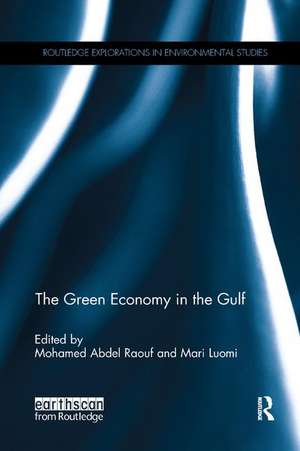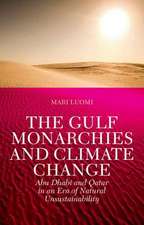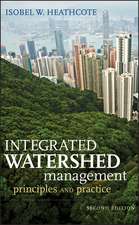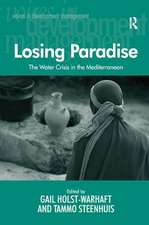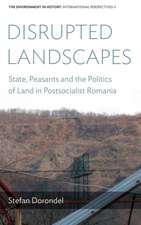The Green Economy in the Gulf: Routledge Explorations in Environmental Studies
Editat de Mohamed Abdel Raouf, Mari Luomien Limba Engleză Paperback – 24 feb 2017
Over the course of the book, academics and practitioners from various fields demonstrate why transitioning into a ‘green economy’ – a future economy based on environmental sustainability, social equity and improved well-being – is not an option but a necessity for the Gulf Cooperation Council (GCC) States. Through chapters covering key economic sectors and cross-cutting issues, the book examines the GCC states’ quest to align their economies and economic development with the imperatives of environmental sustainability and social welfare, and proposes a way forward, based on lessons learned from experiences in the region and beyond.
This volume will be of great relevance to scholars and policy makers with an interest in environmental economics and policy.
| Toate formatele și edițiile | Preț | Express |
|---|---|---|
| Paperback (1) | 449.41 lei 6-8 săpt. | |
| Taylor & Francis – 24 feb 2017 | 449.41 lei 6-8 săpt. | |
| Hardback (1) | 1166.80 lei 6-8 săpt. | |
| Taylor & Francis – 6 aug 2015 | 1166.80 lei 6-8 săpt. |
Din seria Routledge Explorations in Environmental Studies
-
 Preț: 281.77 lei
Preț: 281.77 lei -
 Preț: 243.63 lei
Preț: 243.63 lei -
 Preț: 289.74 lei
Preț: 289.74 lei -
 Preț: 294.74 lei
Preț: 294.74 lei -
 Preț: 326.82 lei
Preț: 326.82 lei -
 Preț: 310.88 lei
Preț: 310.88 lei -
 Preț: 310.29 lei
Preț: 310.29 lei -
 Preț: 326.49 lei
Preț: 326.49 lei -
 Preț: 311.41 lei
Preț: 311.41 lei -
 Preț: 311.41 lei
Preț: 311.41 lei -
 Preț: 279.47 lei
Preț: 279.47 lei -
 Preț: 324.20 lei
Preț: 324.20 lei -
 Preț: 378.44 lei
Preț: 378.44 lei -
 Preț: 410.07 lei
Preț: 410.07 lei -
 Preț: 444.62 lei
Preț: 444.62 lei - 42%
 Preț: 234.90 lei
Preț: 234.90 lei -
 Preț: 480.62 lei
Preț: 480.62 lei - 12%
 Preț: 325.34 lei
Preț: 325.34 lei -
 Preț: 443.65 lei
Preț: 443.65 lei - 18%
 Preț: 1056.32 lei
Preț: 1056.32 lei -
 Preț: 442.50 lei
Preț: 442.50 lei -
 Preț: 461.50 lei
Preț: 461.50 lei -
 Preț: 421.63 lei
Preț: 421.63 lei - 18%
 Preț: 1060.52 lei
Preț: 1060.52 lei - 18%
 Preț: 1109.99 lei
Preț: 1109.99 lei - 25%
 Preț: 852.63 lei
Preț: 852.63 lei -
 Preț: 389.38 lei
Preț: 389.38 lei - 18%
 Preț: 699.99 lei
Preț: 699.99 lei - 15%
 Preț: 418.51 lei
Preț: 418.51 lei -
 Preț: 414.32 lei
Preț: 414.32 lei -
 Preț: 407.57 lei
Preț: 407.57 lei - 18%
 Preț: 1056.28 lei
Preț: 1056.28 lei - 26%
 Preț: 846.09 lei
Preț: 846.09 lei -
 Preț: 438.30 lei
Preț: 438.30 lei - 15%
 Preț: 423.09 lei
Preț: 423.09 lei -
 Preț: 448.44 lei
Preț: 448.44 lei - 13%
 Preț: 296.95 lei
Preț: 296.95 lei - 18%
 Preț: 1167.92 lei
Preț: 1167.92 lei - 16%
 Preț: 65.03 lei
Preț: 65.03 lei - 31%
 Preț: 767.88 lei
Preț: 767.88 lei
Preț: 449.41 lei
Nou
Puncte Express: 674
Preț estimativ în valută:
86.01€ • 89.46$ • 71.00£
86.01€ • 89.46$ • 71.00£
Carte tipărită la comandă
Livrare economică 15-29 aprilie
Preluare comenzi: 021 569.72.76
Specificații
ISBN-13: 9781138894754
ISBN-10: 1138894753
Pagini: 288
Dimensiuni: 156 x 234 mm
Greutate: 0.45 kg
Ediția:1
Editura: Taylor & Francis
Colecția Routledge
Seria Routledge Explorations in Environmental Studies
Locul publicării:Oxford, United Kingdom
ISBN-10: 1138894753
Pagini: 288
Dimensiuni: 156 x 234 mm
Greutate: 0.45 kg
Ediția:1
Editura: Taylor & Francis
Colecția Routledge
Seria Routledge Explorations in Environmental Studies
Locul publicării:Oxford, United Kingdom
Public țintă
PostgraduateCuprins
Part 1 Green Economy and the Gulf 1. Introduction Part 2 Energy and Water 2. Barriers to Greening the Energy Sector in the Gulf Cooperation Council 3. Energy Pricing Reform and the Green Economy in the Gulf Region 4. Spanish Renewable Energy and Energy Efficiency: Lessons for Bahrain Reforms? 5. Promoting an Effective Energy Efficiency Programme in Saudi Arabia: Challenges and Opportunities 6. Green Challenges and Some Technological Solutions in the Water Sector of the GCC Countries Part 3 The Urban Environment 7. Green Buildings in the Arabian Gulf 8. Greening Urban Transport in the Gulf Cooperation Council Countries: Localised Approaches to Modal Integration as Key Success Factors Part 4 Cross-cutting Issues: Labour, Law and International Cooperation 9. Workers and the Green Economy in the Gulf Cooperation Council Countries 10. Agricultural Sustainability and Intellectual Property Rights in the Era of a Green Economy: A Case Study of the United Arab Emirates 11. Green Economy Pathways in the Arab Gulf: Global Perspectives and Opportunities
Recenzii
This book is packed full of facts relating to efforts to green the ecomomies of the gulf.Gulf greening efforts have been speeding up lately and the book expalins what the pressures are to bring this about and why it did not happen before.
Harifiyah Abdel Haleem, The Muslim World Book Review Volume 36 Issue 4 Summer 2017
Harifiyah Abdel Haleem, The Muslim World Book Review Volume 36 Issue 4 Summer 2017
Descriere
Over the course of the book, academics and practitioners from various fields demonstrate why transitioning into a ‘green economy’ – a future economy based on environmental sustainability, social equity and improved well-being – is not an option but a necessity for the Gulf Cooperation Council (GCC) States. Through chapters covering key economic sectors and cross-cutting issues, the book examines the GCC states’ quest to align their economies and economic development with the imperatives of environmental sustainability and social welfare, and proposes a way forward, based on lessons learned from experiences in the region and beyond.
